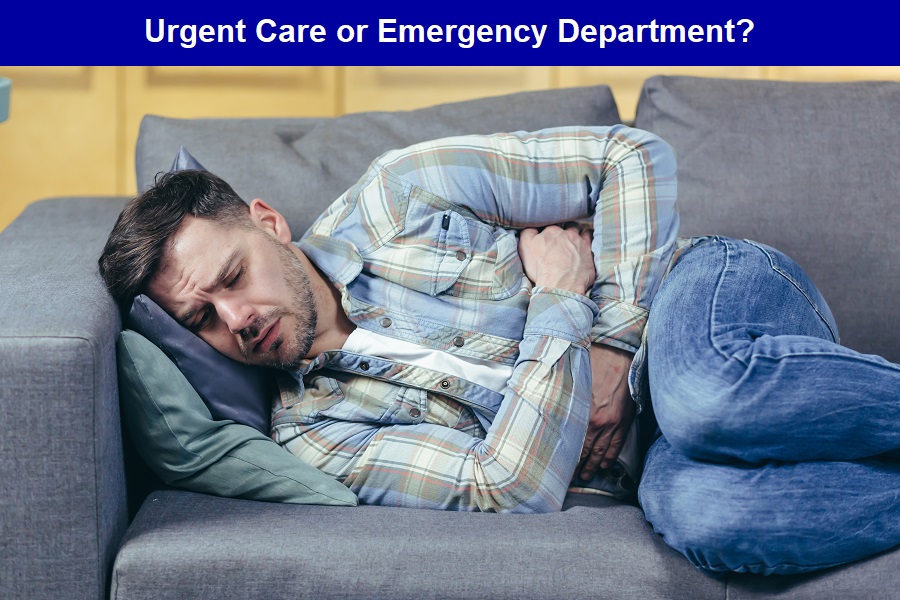Urgent Care vs. Emergency Department

When Illness or injury strikes, you need to decide where and when to get your health care. Sometimes it’s confusing to know when to go to the emergency room (think shark bite) and when urgent care would be a good option (think bug bite). We hope the below guidance helps when you need to decide: Urgent care vs. emergency department. If your condition is life-threatening, call 911 or go to the emergency department immediately. And when you need care for a less serious problem, your primary care provider’s office or an urgent care clinic can help. When it isn’t an emergency, call your doctor’s office any time for advice. That call may save you time.
Illnesses/Injuries Treated at Urgent Care Centers
Urgent care is a convenient option for treating minor injuries or illnesses, such as:
- Sore throat and/or other cold/flu symptoms
- Sinus pain
- Back pain
- Pain in joints or muscles
- Headache (not severe)
- Minor cuts/burns
- Sprain (e.g., ankle, wrist, arm)
- Minor intermittent abdominal pain
- Earache
- Minor rash
- Constipation or diarrhea (not severe)
- Bug bites and stings
- Conjunctivitis, red eye, stye, itchy eye
Remember, if the urgent care provider thinks you need a higher level of care, they will get you to the emergency department.
Illnesses/Injuries Treated at Emergency Departments
Some medical conditions are life-threatening, complex, critical or need advanced treatments that an emergency department can provide, including:
- Hard time breathing
- Chest pain
- Choking
- Unable to move or speak
- Fainting or unconsciousness
- Sudden confusion
- Sudden, severe pain
- Poisoning or overdose
- Bleeding heavily
- Severe burns
- Broken bones
- Attacked by a person/animal
- Thoughts of harm to self/others
Emergency departments provide medical care 24/7. See our Safety and Injury Prevention Library for additional tips that could prevent the need for you to seek medical care.

